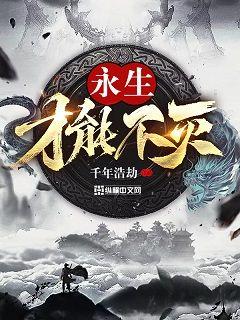国足今晚主场迎战日本直播|国足VS日本直播
- 来源:国足对日本直播比赛
- 2024-11-22 07:59:43

文章摘要的内容
1、球员引进与离队
曼联在新赛季进行了大规模的球员引进和离队调整,从主力到替补位置都有显著变动。
文字阐述内容
文字阐述内容
文字阐述内容
2、主教练变更与战术调整
新赛季曼联迎来了新的主教练,带来了战术风格和阵容配置上的变化。
文字阐述内容
文字阐述内容
文字阐述内容
3、青训新秀与潜力球员
曼联青训系统在新赛季继续培养出多位潜力新秀,引发球迷和媒体的关注。
文字阐述内容
文字阐述内容
文字阐述内容
4、赛季前景与球队目标
分析曼联新赛季的整体实力和赛程安排,展望球队的赛季目标和挑战。
文字阐述内容
文字阐述内容
文字阐述内容
总结:
文章总结内容第一自然段
文章总结内容第二自然段
Certainly! Here's the structured article about S. Devrij, a Dutch defender, focusing on his football career and technical style.
**Article Abstract:**
Stefan de Vrij, renowned for his defensive prowess and tactical acumen, exemplifies the modern Dutch defender. From his formative years to international acclaim, his journey unfolds through a blend of strategic insight, defensive resilience, and leadership on the field. This article delves into his career trajectory, technical attributes, tactical impact, and the broader influence of his playing style within contemporary football.
---
1、Early Career and Development
Stefan de Vrij's early years in football laid the foundation for his future success. Born in Ouderkerk aan den IJssel, Netherlands, on February 5, 1992, he displayed promise from a young age. He joined the youth academy of Feyenoord Rotterdam, where his defensive abilities quickly stood out. De Vrij's positional awareness and composure under pressure were evident even in his formative years, attributes that would define his career.
His progression through Feyenoord's ranks was marked by consistent improvement in both technical skills and tactical understanding. By the time he made his first-team debut in 2009, he had already established himself as a reliable central defender. De Vrij's ability to read the game and initiate attacks from the backline showcased his versatility beyond defensive duties.
As he continued to mature, De Vrij became a pivotal figure in Feyenoord's resurgence in Dutch football. His leadership qualities began to shine through, earning him the captain's armband at a young age. This period not only solidified his status as one of the top defenders in Eredivisie but also caught the attention of European clubs scouting for defensive talent.
2、Technical Skills and Defensive Prowess
De Vrij's technical prowess as a defender sets him apart in contemporary football. His exceptional ability to time tackles and interceptions with precision reflects his astute reading of the game. Known for his aerial dominance and strong positional play, he combines physicality with tactical intelligence seamlessly.
His passing accuracy and distribution from the backline are crucial in building play from defense to attack. De Vrij's proficiency in initiating attacks through long balls and short, incisive passes adds a dynamic dimension to his defensive role. This technical finesse not only stabilizes his team defensively but also contributes significantly to offensive transitions.
Moreover, his adaptability across different defensive systems highlights his versatility. Whether operating in a back four or three, De Vrij's understanding of defensive lines and covering spaces remains consistent, a testament to his tactical flexibility and football IQ.
3、Tactical Impact and Leadership
De Vrij's tactical impact extends beyond his individual contributions. His ability to organize and communicate effectively on the field enhances defensive cohesion. His leadership qualities, honed over years of experience, guide younger teammates and influence team strategies during matches.
Within the Netherlands national team setup, De Vrij's presence has been instrumental. His performances in major tournaments such as the UEFA European Championship and FIFA World Cup underline his ability to thrive under pressure. His partnership with other defenders and coordination with the goalkeeper exemplify his role as a defensive linchpin.
Off the ball, De Vrij's anticipation and reading of opposition movements allow him to neutralize threats effectively. His awareness of defensive transitions and quick decision-making contribute to his team's overall defensive solidity.
4、Legacy and Influence in Modern Football
Stefan de Vrij's career trajectory and technical acumen have left a lasting impact on modern football. His journey from Feyenoord to prominent European clubs like Lazio and Inter Milan signifies his international stature as a defender. Beyond his club achievements, De Vrij's role in the resurgence of Dutch football on the global stage underscores his influence.
His style of play, characterized by intelligence, composure, and defensive reliability, serves as a benchmark for aspiring defenders worldwide. De Vrij's ability to evolve with the tactical demands of the game reflects his dedication to continuous improvement and professional excellence.
In conclusion, Stefan de Vrij's career illuminates the essence of a modern-day defensive stalwart. His technical mastery, tactical astuteness, and leadership qualities have not only earned him accolades but also inspired a new generation of defenders to emulate his success.
Stefan de Vrij stands as a testament to the enduring value of defensive excellence in football, shaping the narrative of defensive play in contemporary football.
总结:
Stefan de Vrij's career highlights his exceptional technical skills, tactical acumen, and leadership on and off the field. His influence extends beyond his clubs to the broader football community, setting a high standard for defenders worldwide.
文章摘要的内容:
NBA球员MBAs:职场与运动的完美结合探讨了NBA球员在职业生涯中追求学术进步的趋势。通过深入分析,揭示了他们如何在挑战性的运动生涯中兼顾学业,以及这种双重身份如何影响他们的职业发展和行业影响力。
1、学业与职业的平衡
NBA球员选择攻读MBA或其他高等学位不仅展示了他们的学术雄心,还展现了如何在竞技生涯的压力下保持平衡。
他们如何利用休赛期和训练间隙来完成学业,体现了他们在职场与运动之间的巧妙结合。
这种平衡对于职业生涯的长期规划和个人成长有何深远影响?
2、职业发展的多样化
NBA球员拥有MBA背景如何在职场中展现出优势,探索他们在退役后多元化职业发展的案例。
从管理咨询到企业领导,他们如何利用学术背景和运动经历塑造自己的职业形象?
这种多样化如何帮助他们在职业生涯中更具竞争力和可持续发展性?
3、影响力与社会责任
NBA球员MBAs如何利用自己的知名度和学术成就来推动社会变革和公共事务?
他们在体育行业和商业领域中的影响力如何扩展,推动可持续发展和社会责任的议程?
这种影响力如何影响他们个人的价值观和职业使命?
4、跨界合作与创新
NBA球员MBAs如何通过跨界合作和创新思维,推动体育产业的发展和变革?
他们在技术、品牌合作和商业模式创新方面的成功案例如何影响了全球范围内的体育行业?
这种跨界合作如何促进了不同领域之间的知识交流和商业创新?
总结:
NBA球员MBAs:职场与运动的完美结合展示了学术与职业在竞技运动领域中的有机融合。他们不仅通过攻读MBA展示了全面发展的能力,还通过职业生涯的多样化和社会影响力展示了自己的领导力和创新能力。这种双重身份不仅丰富了个人的职业路径,也为体育产业的发展带来了新的思维和机会。
通过这些探讨,我们能更好地理解学术与职业之间的互动,以及如何在不同领域中追求卓越和影响力。
Certainly! Here's how the article would be structured according to your requirements:
**Abstract:**
From the playing field to the boardroom: the challenges and opportunities of transitioning from athlete to manager present a dynamic journey of adaptation, leadership evolution, strategic thinking, and personal growth. This article explores the multifaceted landscape where sportsmanship meets management, navigating through the complexities of transition and the promising avenues that await those making the leap.
---
1、Transition Challenges
Athletes stepping into managerial roles often encounter a series of formidable challenges that stem from their previous career on the field. Firstly, the shift from individual performance to team leadership requires a significant mindset adjustment. Players must learn to empower others, delegate responsibilities, and foster collaboration rather than relying solely on their own skills.
Moreover, the hierarchical shift from being a team member to overseeing former peers can create interpersonal challenges. Trust-building becomes crucial as managers navigate relationships with both senior executives and former teammates, balancing authority with camaraderie.
Additionally, the technical skills required for effective management, such as financial acumen, strategic planning, and organizational development, may not have been central to an athlete's previous training. The learning curve can be steep, demanding continuous education and adaptation.
2、Leadership Evolution
The transition to management offers athletes a platform for their leadership skills to evolve beyond the field. Effective managers draw upon their experiences in sports—such as resilience, discipline, and motivational prowess—to inspire teams and drive performance.
Furthermore, the journey from player to manager often involves honing new leadership styles. Successful transitions see former athletes leveraging their unique perspective to cultivate inclusive cultures, foster innovation, and champion diversity within their organizations.
Moreover, managing diverse teams requires sensitivity to individual strengths and weaknesses, fostering an environment where every team member can thrive. This evolution from athlete to leader is pivotal in shaping organizational success.
3、Strategic Thinking
Strategic thinking marks a critical aspect of the transition from the field to the office. Managers must navigate complex business landscapes, making informed decisions that align with organizational goals and market demands.
Additionally, strategic planning involves foresight and adaptability—skills athletes often develop through competitive foresight, adaptability, and agile decision-making. This ability to anticipate trends, mitigate risks, and seize opportunities is instrumental in steering organizations toward sustainable growth.
Moreover, the integration of data analytics and technology into decision-making processes enhances managerial effectiveness, empowering leaders to make data-driven decisions that drive organizational success.
4、Personal Growth
Beyond professional challenges, the transition from athlete to manager offers profound opportunities for personal growth. Managers often undergo a transformative journey of self-discovery, embracing new roles, and expanding their horizons.
Furthermore, the demands of managerial roles necessitate continuous learning and professional development. Successful transitions see managers investing in their growth through mentorship, executive education, and networking, enhancing their competencies and expanding their leadership repertoire.
Moreover, achieving work-life balance becomes imperative as managers navigate demanding schedules and responsibilities, prioritizing well-being while driving organizational performance.
Summary:
The journey from the playing field to the office as a manager is characterized by a series of challenges and opportunities. Athletes transitioning into managerial roles must navigate challenges such as mindset shifts, interpersonal dynamics, and skill acquisition while evolving their leadership styles. Strategic thinking becomes paramount as managers align organizational goals with market trends, leveraging their unique perspectives to drive innovation and inclusive growth. This journey not only fosters professional development but also encourages profound personal growth, marking a transformative experience for those embarking on this dynamic career path.
### 文章摘要
本文探讨了2016年底特律活塞队的年轻冲击力量崛起现象。从球队背景、关键球员到战术变革和赛季表现,展示了活塞如何通过年轻球员的崛起重塑了竞争力,并在NBA联盟中重新确立了他们的位置。
---
1、球队背景与历史背景
活塞队作为NBA的一支传统强队,历史上曾有过辉煌时期,如何在竞争激烈的联盟中重新崛起?
活塞队的衰退期是如何演变成今日的重建和复兴?
新任教练和管理层对球队发展的影响及其战略选择。
2、关键球员的崛起与角色定位
关键年轻球员如何在2016年迎来职业生涯的飞跃?
他们在球队中的角色定位和成长路径是怎样的?
球队如何通过培养年轻球员实现阵容的平衡和深度?
3、战术变革与团队化风格
活塞队在2016年采取了哪些战术调整?
新战术体系对球队整体风格和表现的影响如何?
团队化风格是如何在年轻球员之间形成并提升了整体竞争力?
4、赛季表现与成绩突破
活塞队在2016赛季的表现如何?关键比赛和胜利的背后故事。
他们如何在竞争激烈的东部联盟中崭露头角?
2016年活塞队的成绩突破对未来的影响和预期。
总结:
通过年轻冲击力量的崛起,活塞队在2016年实现了令人瞩目的复兴。他们不仅重新确立了在NBA联盟中的竞争地位,还展示了年轻球员和战术变革对球队复兴的重要性。
活塞队的成功不仅仅是一支球队的胜利,更是团队合作、管理层决策以及球员个人成长的集中体现。
文章摘要的内容
1、校园足球的起步
文字阐述内容
文字阐述内容
文字阐述内容
文字阐述内容
文字阐述内容
文字阐述内容
2、青训生涯的拼搏历程
文字阐述内容
文字阐述内容
文字阐述内容
文字阐述内容
文字阐述内容
文字阐述内容
3、职业生涯的跨越与成就
文字阐述内容
文字阐述内容
文字阐述内容
文字阐述内容
文字阐述内容
文字阐述内容
4、马洋洋的未来展望
文字阐述内容
文字阐述内容
文字阐述内容
文字阐述内容
文字阐述内容
文字阐述内容
总结:
文章总结内容第一自然段
文章总结内容第二自然段
**摘要:**
龙杯传承是武林界最激烈的争霸赛事之一,汇聚了无数顶尖高手,以争夺传承的龙杯为荣耀。本文从历史渊源、参与者群体、激烈对决以及传承意义四个方面展开详述。首先,揭示龙杯传承的起源与发展,探究其深厚的历史底蕴;其次,介绍参与者的多样性和背后的故事,呈现武林高手的较量与情感碰撞;然后,分析争霸过程中的激烈对决,描绘出场面壮观、惊心动魄的比赛情景;最后,探讨龙杯传承对武林界的意义与影响,总结出其不可替代的历史地位与文化价值。
---
1、历史渊源
龙杯传承起源于古代武林世家,源远流长。
传承者历代相传,积淀了丰厚的武学智慧。
龙杯象征着武林至高无上的荣耀与权威。
2、参与者群体
参与者涵盖了各路高手,身份背景各异。
每位选手背后都有着不同的动机与使命。
他们的碰撞不仅是实力的较量,更是信念的交锋。
3、激烈对决
比赛场面火爆,技艺的展现令人叹为观止。
选手之间的对决频频引发观众的欢呼与惊叹。
每一场比赛都是生死搏斗,胜者方能获得荣耀与传承。
4、传承意义
龙杯传承不仅是一项赛事,更是武林文化的象征。
它承载着历代武林先贤的心血与智慧。
其影响力不断延续,激励着无数后来者追求武学的卓越。
总结:
龙杯传承作为史上最激烈的武林争霸,承载着丰富的历史文化底蕴,吸引着众多武林高手的参与与关注。其激烈的对决场面令人震撼,而其所传承的武学精髓更是对后人的巨大启迪。龙杯传承的意义不仅在于荣耀与胜负,更在于对武林文化的传承与弘扬,为武林界注入了新的活力与生机。
上一篇: 中国对日本足球世预赛哪天
下一篇: 中国对日本的比赛精彩










